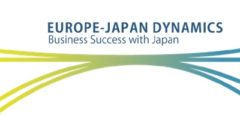Please enjoy fresh & hot news from Japan with comments by Europe-Japan Dynamics.
22 Aug. Nursing by night without disturbing patients by light, An ear cover light developed by Shimane University
Shimane University announced that it developed an LED light for nurses to use hanged on the ear to take care of patients during the night. The wish of a nurse of the hospital attached to the medical department of the University to have a hands-free light which light up the hand without disturbing patients has come true. This lamp is a result of development with companies in Izumo city (Shimane Prefecture) and to be launched in commercial markets in the autumn.
Comments: This case convinces us that technologies find a way to be welcome in society when they are used to help people.

23 Aug. UFJ Bank and Hitachi, starting experiment of the electronic check using FinTech
Bank of Tokyo-Mitsubishi UFJ and Hitachi, Ltd. announced that they began demonstration experiment of electronic issuing and settlement of checks using FinTech (Information Technologies for the financial sector) in Singapore. They aim at putting the electronic check system in practical use in 2018, and plan to use it in Japan and other countries in Asia in the future. In the experiment, so-called “block chain” technology, that encrypts business transaction records such as the settlement will be used.
Comments: The electronic check will accelerate the speed of transaction and therefore money flow in the economy.
24 Aug. The super high-quality sake “rice wine” of Y 88,000.- ($ 880.-) being exported
It costs 88,000 yen or about $ 880.- (tax-excluded) per bottle of 750 milliliters. Such a super high quality sake “Mujaku” has been put on sale. A venture company of Yamaguchi-shi and a sake producer of Iwakuni-shi, Yamaguchi ken, developed it. One thousand (1,000) bottles will be produced, out of which 250 bottles will be sold in Japan. The rest will be exported as “Rice wine” to Dubai, France, etc. Online purchase is also possible from the link here — http://mujaku.jp.
Comments: Sales and consumption of Sake has been shrinking in Japan since years. The sake industry must have a new strategy to appeal the sake to wider markets and a large variety of consumers.
25 Aug. Drying the clothes with high-speed wind of 300km/hour, Hitachi to release a new model of a washing and drying machine
Hitachi Appliances,Inc. is releasing a new model “BD-SV110A” of the drum-type washing and drying machine, “Heat recycling wind iron big drum slim” series in September. In addition to a major feature of this series of drying with a high speed wind of approximately 300km per an hour while steaming the clothes, it has become possible to dry the clothes with less wrinkles by improving the turn control of the drum. The washing capacity is 11 kg. The price without TVA will be around 310,000 yen (about CHF 3000.-).
Comments: What an expensive washing machine it is!
26 Aug. Insominia treatment using the Internet, a new cognitive-behavioral therapy without using drugs
Chiba University Hospital developed a treatment program of the insomnia using the Internet. The therapy is based on the cognitive-behavioral therapy that enables a patient to review his/her way of thinking and action without depending on medicine, while staying at home. The hospital is recruiting participants of the clinical trial to check an effect of the treatment.
Comments: It is a therapy that allows us to voluntarily work on the brain.
- All the news items are picked up from “Asahi Digital”, and summarized and translated by Europe-Japan Dynamics. The articles are not an official translation by the Asahi Newspaper.





